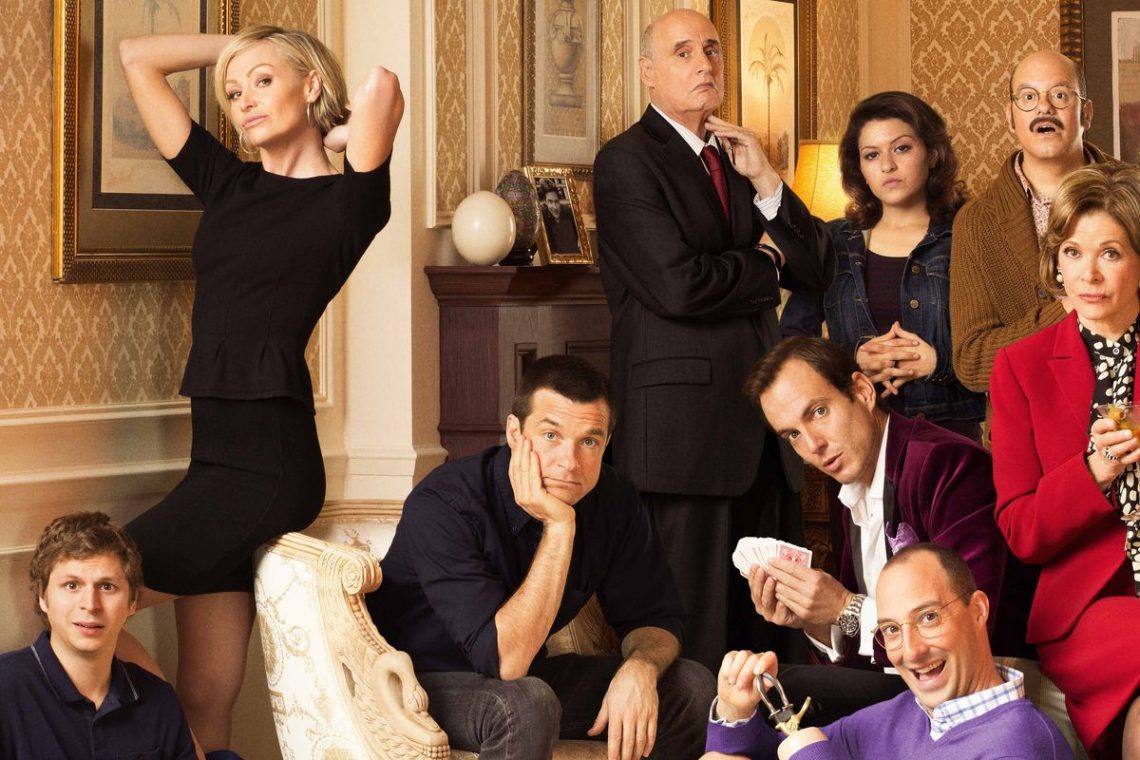Many collectives of funny folks have been rightfully regarded as the architects of modern comedy – from the original lineup of Dad’s Army, to the weird, wonderfully claustrophobia of pastoral dramas Father Ted and The League of Gentlemen – but it’s Arrested Development that seems to hold the greatest influence over the slew of Netflix comedies that have been packaged, reproduced and shipped out to the masses.
The cast of Arrested Development were simply putting together a platform of knowing routines that helped to bolster the plot of a dysfunctional family along to its next place, when it was decided that the audiences had spoken, and the show was cancelled. It was only upon re-watches that the show was acclaimed for its infectious feel-good nature, rewarding the audience’s interest and intellectual commitment to the medium of television, previously pencilled as the Lowman’s art form.
As a series, Arrested Development produced three blinding seasons, before it was unfairly axed, but in 2012, it was revived for a fourth series, set only moments after the third one had left off. It was a dubious proposition, especially since the two child actors – Michael Cena and Alia Shawkat – had grown out of their bodies, into ones that no longer tended for the buoyant, bouncy character beats they were expected to emulate.
It’s to the creator’s credit that they decided to mix up the formula to make up for the change in time, allowing every character one episode to shine in, but the backlash – both critically and domestically – was deafening, causing the creators to second guess their ventures, and to write a fifth series that borrowed almost entirely from the series that had gone before it.
It was a deliberate step back for a series that had been astonishingly inventive, and the series hit another hurdle when it was announced that Portia de Rossi – who had performed many of the show’s more impressive comedy workouts – would only be joining the show for a selection of cameos, many of them produced against the backdrop of a poor green-screen effect.
This left much of the heft on Jessica Walter, who was growing way of co-star’s Jeffrey Tambor’s childish, even volatile behaviour on set.“I have to let go of being angry at him,”Walter recalled through tears, with Tambor only a few feet away. In almost 60 years of working, I’ve never had anybody yell at me like that on a set and it’s hard to deal with, but I’m over it now.”
Indeed, the angst seems a little too tangible, as the two characters bring out the worst aspects of their characters. who are attempting to reform their market as an industrial powerplant that would be palatable to both Chinese developers and domestic settlers. The Bluth family are known to casual fans as 1) being fiery and 2) being extraordinarily wealthy, but number one had nothing to do with number two. Instead, it was the representation of a Wasp like family, carrying on the mythos and the grandeur of the Corleone empire, in the hope of establishing another America.
In the wake of the Trump presidency, the family’s motives now seemed scarily antiquated, positing them as the frontrunner for an America that was decidedly scarier than the disunited States that was presented in the Bluth dominion. And the actors, especially Shawkat, were growing visibly bored capturing the character traits of a persona who really should have grown up, no matter the milieu she presided in. “It’s very surreal doing a job for 15 years,” she explained. “Especially transitioning from a child into an adult. When we finished, I was 18, and I didn’t work for a little while because I was reading [expletive], I was like, “This is just a bad version of an angsty teen.” I was like, “I can’t do this.”
Ominously, the series made the curious decision to paint Buster – once thought to be the most innocent character caught in a childlike gaze and general bonhomie – as a killer, capable of murdering not one, but two defenceless women. Shouldering some of the emotional baggage that had laced the show, the series had now emerged as one of the more misguided remakes in the Netflix canon.
